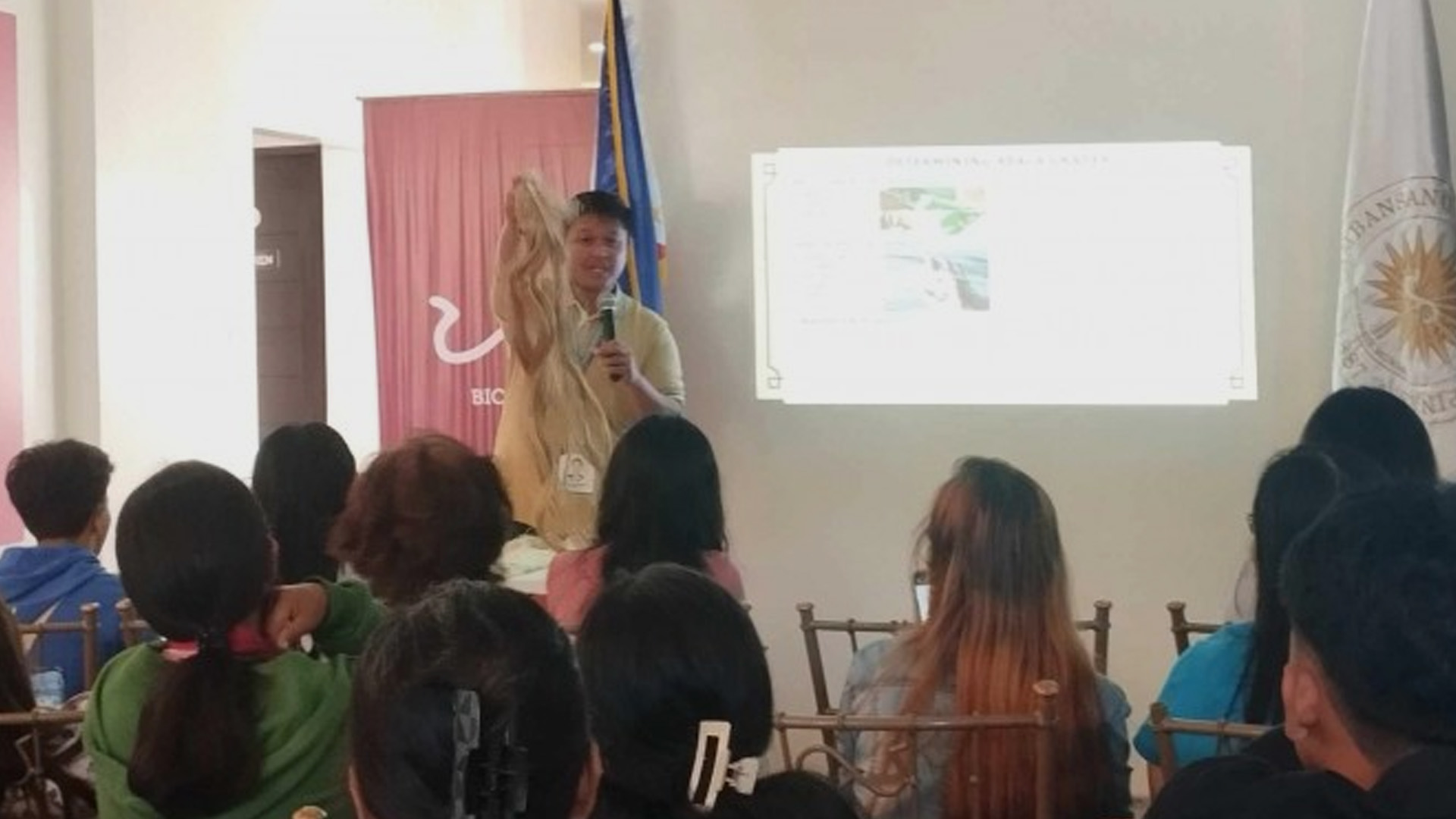The Philippine Fiber Industry Development Authority in Bicol (PhilFIDA-5) has intensified its efforts to boost abaca fiber production in Bicol.
In an interview on Tuesday, Brent Baltazar Marbella, PhilFIDA-5 fiber development officer, said they help farmers by linking them directly to processors and providing training on high-quality fiber production.
“We are providing our abaca farmers’ group or associations with direct access to processors or buyers so that they can discuss the right price and the demand needed. This is part of the marketing strategy provided by our office to help our farmers,” he said.
“We provide technical training on abaca production from establishment to processing and harvesting. We also continue to give free planting materials, provision of farm equipment, a particular stripping knife, and a spindle stripping machine. We also give our farmers technical assistance and livelihood training.”
Marbella said they coordinate with local government units and other national government agencies for financial grants and assistance for the farmers.
“The price of abaca fiber depends on the grade that ranges from PHP45 to PHP55 per kilogram for fair grade, while good to excellent goes up to PHP120 per kilogram,” he said.
Marbella added they have already submitted a funding proposal to its mother agency, the Department of Agriculture, for the rehabilitation of the abaca plantation destroyed by weather disturbances Kristine and Pepito in 2024.
In the Bicol Region, Catanduanes leads in fiber production, making 81.76 percent of all abaca produced in the region, followed by Albay with 11.62 percent, Camarines Sur with 4.67 percent, Sorsogon with 1.38 percent, and Camarines Norte with 0.57 percent.
Abaca demo, training
Meanwhile, the National Museum of the Philippines in Bicol (NMP-Bicol) conducted a two-day workshop about abaca processing and weaving for female participants from Sorsogon as part of its Women’s Month celebration.
In an interview also on Tuesday, Jesseshan Aycocho, NMP-Bicol information officer, said the activity aims to highlight women’s capacity to extract abaca fiber in the abaca industry, which is traditionally a male-dominated industry.
“If you have observed earlier, we have two women hand-strippers manually extracting abaca fiber through the traditional abaca hand-stripping device. We saw that it’s a laborious task, but of course, in celebration of women’s month, we want to show our participants and the public that women can also do it,” she said.
Aycocho said that as Bicol is one of the largest producers of abaca, it is important to showcase the tangible and intangible cultural heritage attached to abaca.
“This activity is conducted annually, and we would like to make people aware of our own identity by featuring and popularizing the abaca culture. Through this activity, with the help of our women culture bearers, we want the younger generations and other generations to appreciate the stories behind the abaca tradition,” Aycocho added.
She said NMP-Bicol, as a cultural and educational institution, would like to support these initiatives to encourage the public to embrace abaca production as part of their culture.
Meanwhile, Leslie Mojar, a participant and a Grade 11 student from Pilar, Sorsogon, said the experience provided her with additional knowledge and skills.
“As a woman and a youth, I am encouraged to work hard. I want to show them that being a woman does not mean being weak —we also have strength, and we are capable of doing difficult tasks like abaca weaving,” Mojar said. (PNA)









